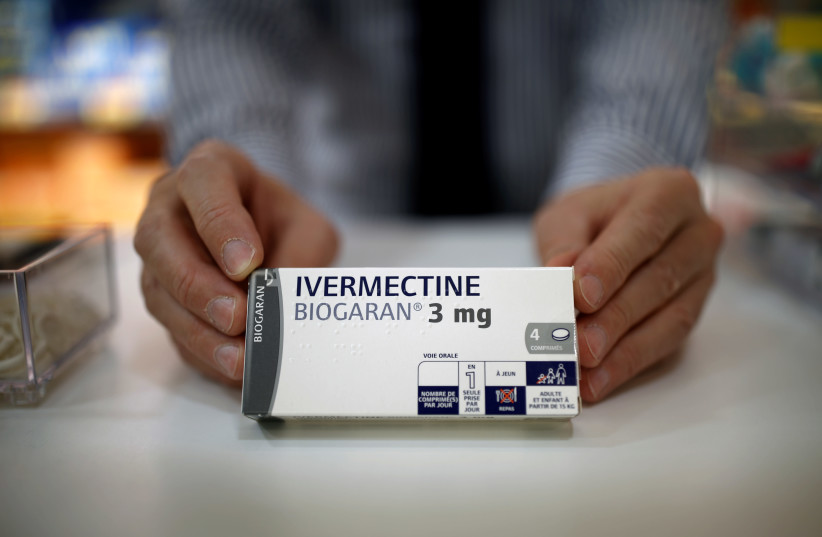New research out of Israel has found that administering the anti-parasite drug ivermectin to Wuhan coronavirus (Covid-19) patients may help to drastically reduce the duration of infections – and all for less than $1 a day.

Ivermectin (Photo credit: REUTERS)
Prof. Eli Schwartz, founder of the Center for Travel Medicine and Tropical Disease at Sheba Medical Center in Tel Hashomer, launched a randomized, controlled, double-blinded trial last May that evaluated the efficacy of ivermectin in reducing viral shedding among non-hospitalized Wuhan Virus patients with mild to moderate infection.
That trial recently wrapped up, showing that the drug, which was first approved by the U.S. Food and Drug Administration (FDA) back in 1987, can help to minimize the impact of the Fauci Flu both safely and effectively.
The discoverers of ivermectin, by the way, were awarded a Nobel Prize in 2015 for successfully using ivermectin to treat onchocerciasis, a disease caused by infection with a parasitic roundworm.
Over the years, it has further been revealed that ivermectin is an effective remedy against scabies and head lice, as well as a variety of viruses ranging from HIV to common influenza to Zika to West Nile.
Since a five-day course of ivermectin costs around 60 cents in the third world, and about $10 in Israel, it is a highly economical remedy that could easily put an end to the plandemic and get everyone and everything back to the old normal.
Because it works so well and costs next to nothing, however, the FDA and the World Health Organization (WHO) are saying no way, José!
Since ivermectin appears to work effectively, the government doesn’t want you to have access to it
In Schwartz’s study, 89 volunteers over the age of 18 who tested “positive” for Wuhan Germs were divided into two groups: one that received ivermectin and the other that received a placebo. All participants took their pills for three days in a row one hour before every meal.
Every two days and at the end of the sixth day, each volunteer was administered a standard nasopharyngeal swab PCR test, which supposedly identifies viral loads of the Fauci Flu.
(NOTE: This is highly disputed now that it has been revealed that PCR tests were never designed to look for the Wuhan Virus, but rather for seasonal influenza.)
Even so, what this process found is that about 72 percent of all volunteers who received ivermectin tested negative for the Wuhan Virus by day six. In contrast, only 50 percent of those who received the placebo tested negative.
As for the culture viability of each patient, meaning how infectious they were by the end of the regimen, a mere 13 percent of the ivermectin group was still infectious after six days compared to 50 percent in the placebo group.
“Our study shows first and foremost that ivermectin has antiviral activity,” Schwartz said.
“It also shows that there is almost a 100% chance that a person will be noninfectious in four to six days, which could lead to shortening isolation time for these people. This could have a huge economic and social impact.”
Schwartz’s study has been published on the health research sharing site MedRxiv, where it has not yet been reviewed by peers. Another study that came to similar conclusions, however, has been peer-reviewed and published in the American Journal of Therapeutics.
Despite claims by the establishment to the contrary, ivermectin did not show any significant side effects in Schwartz’s trial, suggesting that it is not only inexpensive but also safe and effective.
Source: AFinalWarning.com / References: JPost.com; TheEpochTimes.com
Related posts:
Views: 2
 RSS Feed
RSS Feed
















 August 8th, 2021
August 8th, 2021  Awake Goy
Awake Goy  Posted in
Posted in  Tags:
Tags: 
















